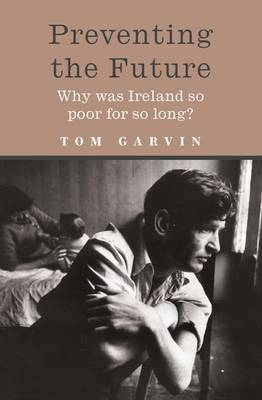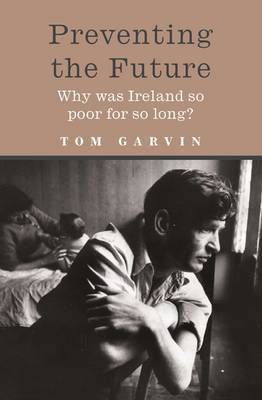
- Afhalen na 1 uur in een winkel met voorraad
- Gratis thuislevering in België vanaf € 30
- Ruim aanbod met 7 miljoen producten
- Afhalen na 1 uur in een winkel met voorraad
- Gratis thuislevering in België vanaf € 30
- Ruim aanbod met 7 miljoen producten
Zoeken
€ 30,95
+ 61 punten
Omschrijving
Between the years of the mid thirties through to 1960, independent Ireland suffered from economic stagnation, and also went through a period of intense cultural and psychological repression. While external circumstances account for much of the stagnation - especially the depression of the thirties and the Second World War - Preventing the Future argues that the situation was aggravated by internal circumstances. The key domestic factor was the failure to extend higher and technical education and training to larger sections of the population. This derived from political stalemates in a small country which derived in turn from the power of the Catholic Church, the strength of the small-farm community, the ideological wish to preserve an older society and, later, gerontocratic tendencies in the political elites and in society as a whole. While economic growth did accelerate after 1960, the political stand-off over mass education resulted in large numbers of young people being denied preparation for life in the modern world and, arguably, denied Ireland a sufficient supply of trained labor and educated citizens. Ireland's Celtic Tiger of the nineties was in great part driven by a new and highly educated and technically trained workforce. The political stalemates of the forties and fifties delayed the initial, incomplete take-off until the sixties and resulted in the Tiger arriving nearly a generation later than it might have.
Specificaties
Betrokkenen
- Auteur(s):
- Uitgeverij:
Inhoud
- Aantal bladzijden:
- 352
- Taal:
- Engels
Eigenschappen
- Productcode (EAN):
- 9780717139705
- Verschijningsdatum:
- 13/09/2005
- Uitvoering:
- Paperback
- Formaat:
- Trade paperback (VS)
- Afmetingen:
- 127 mm x 196 mm
- Gewicht:
- 453 g

Alleen bij Standaard Boekhandel
+ 61 punten op je klantenkaart van Standaard Boekhandel
Beoordelingen
We publiceren alleen reviews die voldoen aan de voorwaarden voor reviews. Bekijk onze voorwaarden voor reviews.











